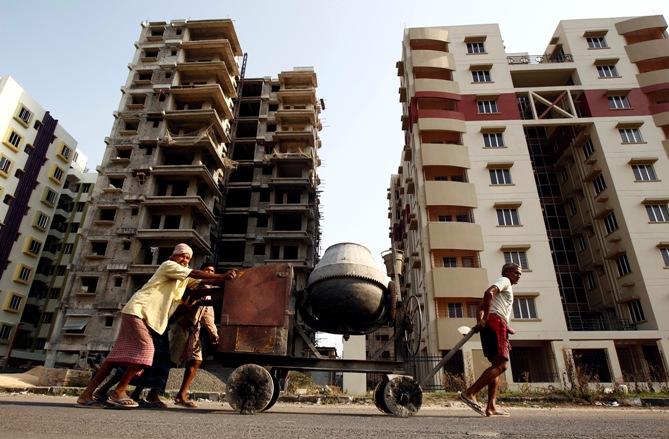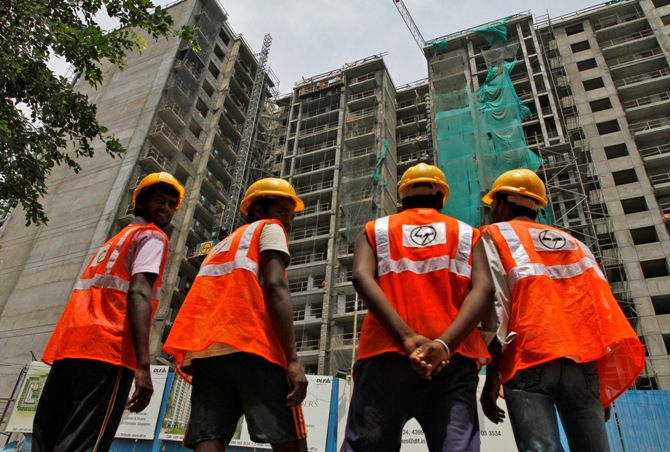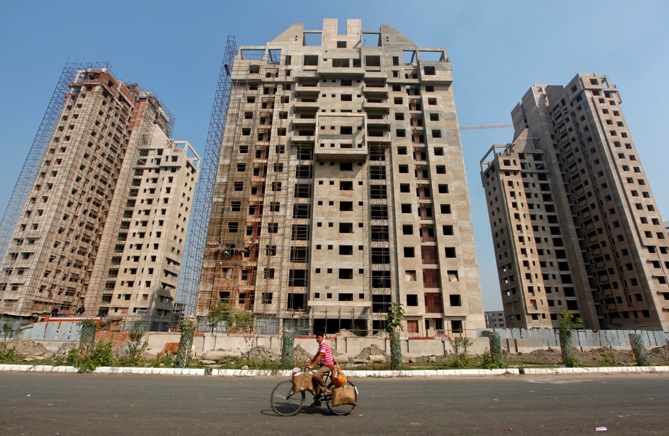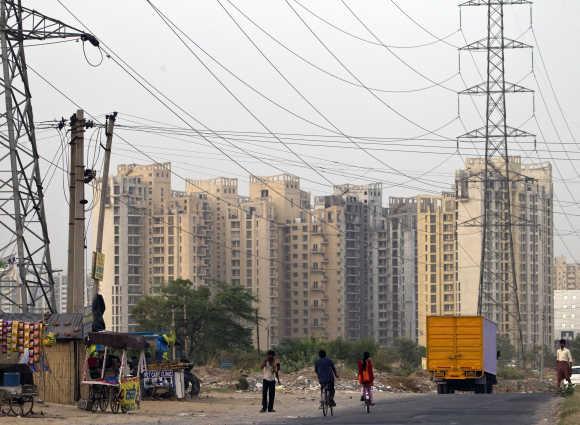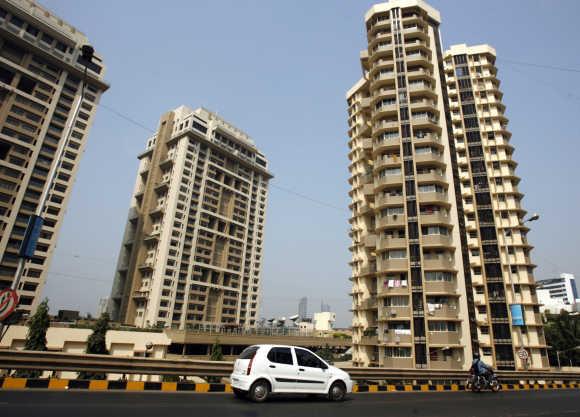 | « Back to article | Print this article |
Construction delayed? Builder must return money on demand
Builders insist on timely payments and demand interest at high rates in case a flat purchaser delays payment.
Yet, going against equity, they avoid paying interest or even refunding a flat purchaser’s own money when a project is delayed
Here is the case of a doctor who took a prominent builder to task.
Neguib Yahya Kachwalla, a Mumbai-based cardiologist, had booked a 2 BHK flat measuring 1,695 square foot along with a car parking space in a building being constructed by Orbit Corporation.
The allotment letter issued on October 21, 2009 stated the total payment of Rs 3,25,11,750.
Please click NEXT to read further. . .
The image is used for representational purpose only
Construction delayed? Builder must return money on demand
After the foundation stone was laid, the builder sent a letter in October 2011 stating possession for the purpose of interiors and fit-outs would be handed over in August 2013.
The doctor kept paying the instalments as demanded.
Although Rs 1.16 crore (Rs 11.6 million) was collected, the builder avoided executing the agreement.
When the constructed work stopped and the builder was unable to hand over possession by the agreed date, the doctor demanded interest or refund of the money paid by him but Orbit refused to comply.
Please click NEXT to read further. . .
The image is used for representational purpose only
Construction delayed? Builder must return money on demand
The doctor filed a complaint before the National Commission, asking for a refund along with interest and compensation or alternatively, a direction to Orbit to execute and register the agreement for sale of the flat.
Orbit contested the complaint.
The builder claimed that in 2006, it had become the owner of Murgiwala Chawl at Lower Parel, formerly known as Dadabhai Chawl.
The original tenants had to be rehabilitated in a redevelopment scheme and a building had to be constructed in which the doctor had booked a flat.
Please click NEXT to read further. . .
The image is used for representational purpose only
Construction delayed? Builder must return money on demand
The builder stated that after construction of the building till the seventh floor, they had applied for amending the building plans, which was awaiting approval from the municipal authorities.
Subsequently, because of change in government policies, it had also become necessary to obtain an environment clearance.
The policy decisions may result in a variation in the area by about 10 per cent, but the exact calculation would become clear only after obtaining all the clearances.
Hence, Orbit claimed the delay in executing the agreement was because of circumstances beyond its control, and the agreement would be executed once the permissions were obtained and plans finalised.
Please click NEXT to read further. . .
The image is used for representational purpose only
Construction delayed? Builder must return money on demand
Orbit claimed that it would become bankrupt if it had to return money to all flat purchasers demanding a refund.
In its judgment of August 8, 2014, delivered by Justice J M Malik along with S M Kantikar, the National Commission observed the builder ought to have anticipated problems from certain tenants while undertaking a redevelopment scheme.
But once the foundation stone was laid, there cannot be any excuse for delaying construction.
The possession date of August 2013 was also merely for the purpose of interiors and fit-outs, and not for occupation.
A flat purchaser cannot be made to wait for years together for a roof over his head, and to suffer for the builder’s inaction, negligence and passivity.
Please click NEXT to read further. . .
The image is used for representational purpose only
Construction delayed? Builder must return money on demand
The Commission concluded Orbit was trying to feather its own nest and make profit at the expense of others.
Since land prices have increased by leaps and bounds, there should be no difficulty in returning the money paid by the doctor towards the flat.
Accordingly, Orbit was directed to refund the entire amount of Rs 1,16,11,340, along with 18 per cent interest and litigation costs of Rs 100,000.
The builder was directed to comply with this order with 45 days, and in default pay interest at 21 per cent annually.
This judgment ought to make builders realise that they will have to suffer the consequences of illegally holding on to a consumer’s money and refusing to refund it.
Jehangir Gai is a consumer activist
The image is used for representational purpose only
